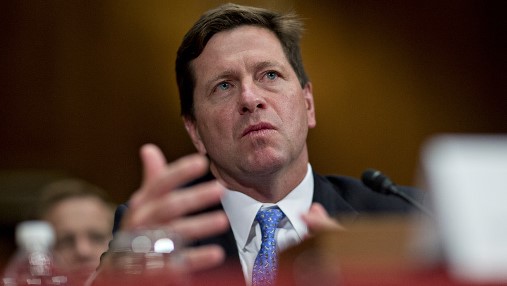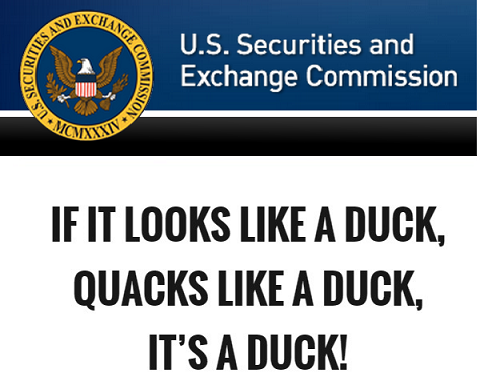Corporate Bond Market Transparency 4.0 MarketsMuse fixed income fintech curators, who have been on the beat for better than 8 years, were keen to cover this week’s inaugrual meeting of FIMSAC. e-Bond trading system founders, fixed income fund managers and fintech aficionados who have long lamented the limited degree of US corporate bond market transparency and less-than-likeable liquidity when trading corporate bonds in the secondary market and who ‘get the joke’ insofar as the benefits of embracing electronic trading platforms for corporate bonds might have a new advocate: SEC Chair Jay Clayton. At least that’s the way it appears based on comments Clayton made on Thursday while speaking to members of the Fixed Income Market Structure Advisory Committee (FIMSAC) during the group’s first meeting in Washington DC.
Whether Clayton does a typical White House walk-back after financial industry lobbyists turn up the heat in effort to preserve their legacy role controlling order flow and pricing remains to be seen. Because Clayton’s axe is less focused on institutional participants versus retail investors when stating “Main Street investors want liquidity; it is a sign of stability and resiliency..” he may not understand how the corporate bond works or the process by which individual investors become holders of corporate debt within their portfolios. If that’s the case, he’s perhaps perfectly suited to be a member of the present White House administration.
The importance of fixed income markets is “difficult to overstate,” Clayton said, noting the value of outstanding corporate bonds rose 76 percent between 2006 and 2016, compared to equity market cap growth of 40 percent.
“Individual investors are key participants in these markets, both directly and indirectly through pension funds and other pooled vehicles,” Clayton said, adding that he intends for the commission to continue focusing on these investors.
Courtesy of Law360 coverage: “Concerns regarding liquidity, or the ease with which buyers and sellers can match up in a given market, have been raised by bond market investors in recent years as big banks that serve as bond dealers and market makers, acting on new regulations imposed in the wake of the 2009 financial crisis, have reduced their balance sheets to cut costs and rein in risk.
The banks have shrunk their balance sheets by scaling back on the large bond positions they once held and used for creating markets for bond investors.
Some bond market participants have said the smaller balance sheets have led to reduced liquidity because it’s now harder to match buyers and sellers. That’s raised concerns that investors could lose lots of money should they need to quickly sell a large block of bonds into a market with few buyers.
Companies seeking to raise capital via private placement of debt instruments and in need of offering prospectus document preparation services turn to investor document specialists at global consultancy Prospectus.com
The wider concern is that if liquidity is already fragile it could essentially freeze during a time of financial stress when lots of investors choose to sell their bonds. When that happens, as it did in 2007, a domino effect kicks in which, given the size and reach of global bond markets, poses a threat to the world’s economy.
Committee member Gilbert Garcia, managing partner of Houston-based bond manager Garcia Hamilton & Associates, said he trades daily and has firsthand knowledge of a lack of liquidity during normal trading conditions, especially for large blocks of bonds.
“What we need to do is be ready for the next crisis,” Garcia told other members of the committee.
Scott Krohn, Verizon Communications Inc.’s treasurer and also a committee member, raised a concern that yields on Verizon’s highly liquid bonds could be vulnerable to extreme volatility during periods of financial stress as investors flee riskier securities in favor of safer ones, such as Verizon’s corporate debt.
To read the full article from Law360, click here



